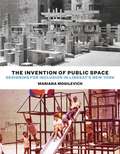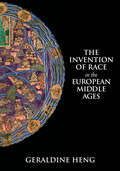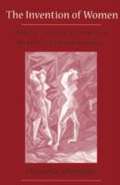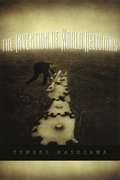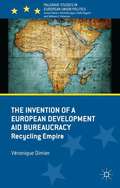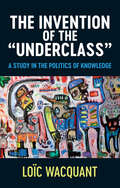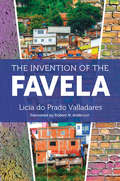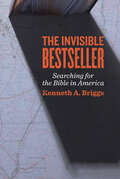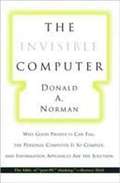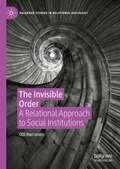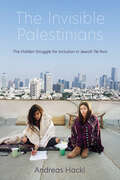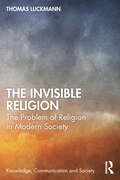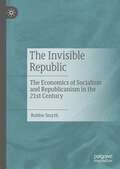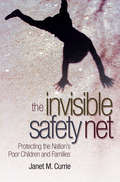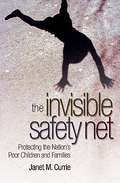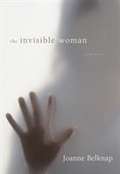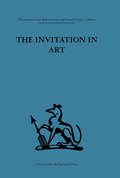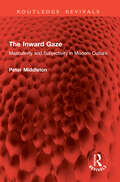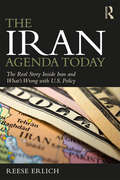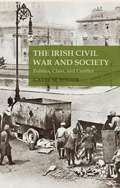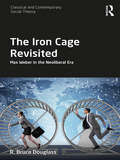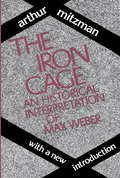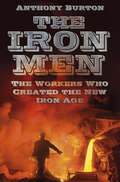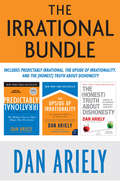- Table View
- List View
The Invention of Infinity: Essays on Husserl and the History of Philosophy (Contributions to Phenomenology #124)
by Claudio MajolinoThis book covers Husserl’s stance on the philosopher and the history of philosophy, whether or not such a history is part of the philosophical attitude itself, and if so, how Husserl’s phenomenology might weigh in on such matters. Firstly, this text spells out some of the manifold ways in which the history of philosophy works its way in Husserl’s phenomenology, showing how concepts, methods and problems drawn from various Ancient and Modern philosophical traditions (Platonism, Aristotelianism, Sophistry, Stoicism, Scholasticism, Modern Rationalism) are transformed and embedded within transcendental phenomenology itself. Secondly, it shows how a better understanding of the distinctive patterns by means of which Husserl’s phenomenology confronts the history of philosophy could be extremely significant for historians of philosophy who are interested in learning something entirely new about the unexplored horizons of such concepts, methods and problems. Finally, based on such twofold historical and philosophical approach and thanks to a substantial reinterpretation of some key phenomenological concepts such as “multiplicity”, “constitution”, “attitude” and “variation”, this book provides a novel and original reading of Husserl’s overall philosophical project in its full meaning and scope. By doing so, this volume appeals to both students and researchers and critically engages in mainstream interpretations of phenomenology, suggesting a unique take on the idea of transcendental phenomenology as a whole.
The Invention of Public Space: Designing for Inclusion in Lindsay's New York
by Mariana MogilevichThe interplay of psychology, design, and politics in experiments with urban open space As suburbanization, racial conflict, and the consequences of urban renewal threatened New York City with &“urban crisis,&” the administration of Mayor John V. Lindsay (1966–1973) experimented with a broad array of projects in open spaces to affirm the value of city life. Mariana Mogilevich provides a fascinating history of a watershed moment when designers, government administrators, and residents sought to remake the city in the image of a diverse, free, and democratic society.New pedestrian malls, residential plazas, playgrounds in vacant lots, and parks on postindustrial waterfronts promised everyday spaces for play, social interaction, and participation in the life of the city. Whereas designers had long created urban spaces for a broad amorphous public, Mogilevich demonstrates how political pressures and the influence of the psychological sciences led them to a new conception of public space that included diverse publics and encouraged individual flourishing. Drawing on extensive archival research, site work, interviews, and the analysis of film and photographs, The Invention of Public Space considers familiar figures, such as William H. Whyte and Jane Jacobs, in a new light and foregrounds the important work of landscape architects Paul Friedberg and Lawrence Halprin and the architects of New York City&’s Urban Design Group.The Invention of Public Space brings together psychology, politics, and design to uncover a critical moment of transformation in our understanding of city life and reveals the emergence of a concept of public space that remains today a powerful, if unrealized, aspiration.
The Invention of Race in the European Middle Ages
by Geraldine HengIn The Invention of Race in the European Middle Ages, Geraldine Heng questions the common assumption that race and racisms only began in the modern era. Examining Europe’s encounters with Jews, Muslims, Africans, Native Americans, Mongols, and the Romani (“Gypsies”) from the twelfth through fifteenth centuries, she shows how racial thinking, racial law, racial practices, and racial phenomena existed in medieval Europe before a recognizable vocabulary of race emerged in the West. Analyzing sources in a variety of media, including stories, maps, statuary, illustrations, architectural features, history, saints’ lives, religious commentary, laws, political and social institutions, and literature, she argues that religion – so much in play again today – enabled the positing of fundamental differences among humans that created strategic essentialisms to mark off human groups and populations for racialized treatment. Her groundbreaking study also shows how race figured in the emergence of homo europaeus and the identity of Western Europe in this time.
The Invention of Women: Making An African Sense of Western Gender Discourses
by Oyeronke OyewumiA work that rethinks gender as a Western construction, The Invention of Women offers a new way of understanding both Yoruban and Western cultures. Author Oyeronke Oyewumi reveals an ideology of biological determinism at the heart of Western social categories-the idea that biology provides the rationale for organizing the social world. And yet, she writes, the concept of OC woman, OCO central to this ideology and to Western gender discourses, simply did not exist in Yorubaland, where the body was not the basis of social roles. Oyewumi traces the misapplication of Western, body-oriented concepts of gender through the history of gender discourses in Yoruba studies. Her analysis shows the paradoxical nature of two fundamental assumptions of feminist theory: that gender is socially constructed and that the subordination of women is universal. The Invention of Women demonstrates, to the contrary, that gender was not constructed in old Yoruba society, and that social organization was determined by relative age. A meticulous historical and epistemological account of an African culture on its own terms, this book makes a persuasive argument for a cultural, context-dependent interpretation of social reality. It calls for a reconception of gender discourse and the categories on which such study relies. More than that, the book lays bare the hidden assumptions in the ways these different cultures think. A truly comparative sociology of an African culture and the Western tradition, it will change the way African studies and gender studies proceed.
The Invention of World Religions
by Tomoko MasuzawaThe idea of "world religions" expresses a vague commitment to multiculturalism. Not merely a descriptive concept, "world religions" is actually a particular ethos, a pluralist ideology, a logic of classification, and a form of knowledge that has shaped the study of religion and infiltrated ordinary language. In this ambitious study, Tomoko Masuzawa examines the emergence of "world religions" in modern European thought. Devoting particular attention to the relation between the comparative study of language and the nascent science of religion, she demonstrates how new classifications of language and race caused Buddhism and Islam to gain special significance, as these religions came to be seen in opposing terms-Aryan on one hand and Semitic on the other. Masuzawa also explores the complex relation of "world religions" to Protestant theology, from the hierarchical ordering of religions typical of the Christian supremacists of the nineteenth century to the aspirations of early twentieth-century theologian Ernst Troeltsch, who embraced the pluralist logic of "world religions" and by so doing sought to reclaim the universalist destiny of European modernity.
The Invention of a European Development Aid Bureaucracy: Recycling Empire (Palgrave Studies in European Union Politics)
by Véronique DimierA comprehensive analysis of how European development policy was shaped, this book explores the role of former colonial officials in shaping the policy agenda and explores this example of 'recycled empire.' Dimier argues that this post-colonial agenda only changed as a result of pressure from the OECD and World Bank in the 1980s and 1990s.
The Invention of the 'Underclass': A Study in the Politics of Knowledge
by Loïc WacquantAt century’s close, American social scientists, policy analysts, philanthropists and politicians became obsessed with a fearsome and mysterious new group said to be ravaging the ghetto: the urban “underclass.” Soon the scarecrow category and its demonic imagery were exported to the United Kingdom and continental Europe and agitated the international study of exclusion in the postindustrial metropolis. In this punchy book, Loïc Wacquant retraces the invention and metamorphoses of this racialized folk devil, from the structural conception of Swedish economist Gunnar Myrdal to the behavioral notion of Washington think-tank experts to the neo-ecological formulation of sociologist William Julius Wilson. He uncovers the springs of the sudden irruption, accelerated circulation, and abrupt evaporation of the “underclass” from public debate, and reflects on the implications for the social epistemology of urban marginality. What accounts for the “lemming effect” that drew a generation of scholars of race and poverty over a scientific cliff? What are the conditions for the formation and bursting of “conceptual speculative bubbles”? What is the role of think tanks, journalism, and politics in imposing “turnkey problematics” upon social researchers? What are the special quandaries posed by the naming of dispossessed and dishonored populations in scientific discourse and how can we reformulate the explosive question of “race” to avoid these troubles? Answering these questions constitutes an exacting exercise in epistemic reflexivity in the tradition of Bachelard, Canguilhem and Bourdieu, and it issues in a clarion call for social scientists to defend their intellectual autonomy against the encroachments of outside powers, be they state officials, the media, think tanks, or philanthropic organizations. Compact, meticulous and forcefully argued, this study in the politics of social science knowledge will be of great interest to students and scholars in sociology, anthropology, urban studies, ethnic studies, geography, intellectual history, the philosophy of science and public policy.
The Invention of the Favela (Latin America in Translation/en Traducción/em Tradução)
by Licia do ValladaresFor the first time available in English, Licia do Prado Valladares's classic anthropological study of Brazil's vast, densely populated urban living environments reveals how the idea of the favela became an internationally established—and even attractive and exotic—representation of poverty. The study traces how the term "favela" emerged as an analytic category beginning in the mid-1960s, showing how it became the object of immense popular debate and sustained social science research. But the concept of the favela so favored by social scientists is not, Valladares argues, a straightforward reflection of its social reality, and it often obscures more than it reveals.The established representation of favelas undercuts more complex, accurate, and historicized explanations of Brazilian development. It marks and perpetuates favelas as zones of exception rather than as integral to Brazil's modernization over the past century. And it has had important repercussions for the direction of research and policy affecting the lives of millions of Brazilians. Valladares's foundational book will be welcomed by all who seek to understand Brazil's evolution into the twenty-first century.
The Invisible Bestseller: Searching for the Bible in America
by Kenneth A. BriggsA personal and journalistic inquiry into the Bible's disappearance from American life In The Invisible Bestseller veteran religion writer Kenneth Briggs asks how the Bible remains the best-selling book of all time, while fewer Americans than ever can correctly articulate what it says, much less how it might offer guidance for their lives. How can a book — one that's found in courthouses, libraries, and millions of households across the land — be everywhere and nowhere at the same time? In his quest to make sense of the Bible's relative dis-appearance from public life, Briggs leads readers on a rollicking exploration that includes visits to Family Christian Stores, the Society of Biblical Literature, and the kitchen tables of everyday families. He offers insight on the Bible's current position in American public life and suggests where it may be headed next.
The Invisible Computer: Why Good Products Can Fail, the Personal Computer Is So Complex, and Information Appliances Are the Solution
by Donald A. NormanTechnologies have a life cycle, says Donald A. Norman, and they must change as they pass from youth to maturity. Alas, the computer industry thinks it is still in its rebellious teenage years, exalting in technical complexity.
The Invisible Order: A Relational Approach to Social Institutions (Palgrave Studies in Relational Sociology)
by Olli HerranenThe book addresses the problem of institutionalised order in modern capitalist societies with highly developed division of labour. Via thorough critique and reconstruction of neo institutionalist theory, classical social theories, and critical ideology theory, The Invisible Order introduces the first relational theory of social institutions to explain in detail how individuals end up encountering institutions as objective. Thus synthesising integrative and conflicting social relations, the work calls into question deeply rooted understandings in which society is variously construed as spontaneous equilibrium, solely conflict-driven, or a set of agent-based constructions. It offers a new take on the age-old questions of classical and critical social theory and on the fundamentals of institutional and organisational theory alike. This timely and useful relational examination of social institutions reveals how complex societies can keep functioning even though their orders are constantly contradicted by multiple disordering endeavours and tendencies.
The Invisible Palestinians: The Hidden Struggle for Inclusion in Jewish Tel Aviv (Public Cultures of the Middle East and North Africa)
by Andreas HacklWithin the heart of the Jewish city of Tel Aviv, there is a hidden reality—Palestinians who work, study, and live as an unseen minority without access to equal urban citizenship.Grounded in the everyday lives of Palestinians in Tel Aviv, The Invisible Palestinians offers an ethnographic critique of the city's self-proclaimed openness and liberalism. Andreas Hackl reveals that Palestinians' access to the social and economic opportunities afforded in Tel Aviv depends on keeping a low profile, which not only disrupts opportunities for true urban citizenship but also draws opposition from other Palestinians. By looking at the city from the perspective of this hidden urban minority, Hackl uncovers a critical opportunity to imagine and build a more inclusive and just future for Tel Aviv. An important read, The Invisible Palestinians explores the marginalized urban presence of both Palestinian citizens of Israel and Palestinian laborers from the West Bank in this quintessential Jewish Israeli city. Hackl reveals a highly diverse Palestinian population that includes young people, manual workers and middle-class professionals, residents and commuters, students, artists, and activists, as well as members of an underground Palestinian LGBT community who carefully navigate their place in a city that refuses to recognize them.
The Invisible Religion: The Problem of Religion in Modern Society (Knowledge, Communication and Society)
by Thomas LuckmannThe Invisible Religion is a modern classic of social science. Its influence goes well beyond sociology as it continues to inspire research in such diverse fields as sociology of knowledge, ethnology, theology, sociology of religion, and religious studies. In this volume, the author endeavours to answer one of the most important questions regarding religion in modern times: Are Western societies indeed becoming more secular as they modernize? His surprising answer is still part of the ongoing debates about secularization as he argues that rather than a decline of religion, we are witnessing a shift from an older Church-centered form, to another invisible and still largely unexplored form of religion. Explaining why focusing only on Church when discussing religion is inadequate, this book presents a thorough case for reframing the question of the status of religion in modern life in a way that makes visible forms of religion hitherto unseen, and sketches some aspects of this new form. As such, it will appeal to sociologists with interests in social theory, religion, and the secularization thesis.
The Invisible Republic: The Economics of Socialism and Republicanism in the 21st Century
by Robbie SmythThe book establishes a philosophical base for the economic principles of Irish republicanism in the 21st century. It traces these from their late 18th century origins to the present day. It is unique in terms of contemporary books about Irish republicanism. There has been a dearth of economic analysis of the republican position since the creation of the modern Irish state in 1922.The book makes a link between the politics of Tone, Davis, Lalor, Connolly and Pearse through the economic experience of people living and working in not just Ireland but around the world today. The examples are contemporary but the ideological basis stretches from the present day back through the last 250 years of developing Irish republican thought.It identifies a series of key contemporary economic issues and gives a socialist republican perspective on possible solutions and strategies. Ultimately it provides a recalibration of the principles of socialism and republicanism in the 21st century.
The Invisible Safety Net: Protecting the Nation's Poor Children and Families
by Janet CurrieIn one of the most provocative books ever published on America's social welfare system, economist Janet Currie argues that the modern social safety net is under attack. Unlike most books about antipoverty programs, Currie trains her focus not on cash welfare, which accounts for a small and shrinking share of federal expenditures on poor families with children, but on the staples of today's American welfare system: Medicaid, Food Stamps, Head Start, WIC, and public housing. These programs, Currie maintains, form an effective, if largely invisible and haphazard safety net, and yet they are the very programs most vulnerable to political attack and misunderstanding. This book highlights both the importance and the fragility of this safety net, arguing that, while not perfect, it is essential to fighting poverty. Currie demonstrates how America's safety net is threatened by growing budget deficits and by an erroneous public belief that antipoverty programs for children do not work and are riddled with fraud. By unearthing new empirical data, Currie makes the case that social programs for families with children are actually remarkably effective. She takes her argument one step further by offering specific reforms--detailed in each chapter--for improving these programs even more. The book concludes with an overview of an integrated safety net that would fight poverty more effectively and prevent children from slipping through holes in the net. (For example, Currie recommends the implementation of a benefit "debit card" that would provide benefits with less administrative burden on the recipient.) A complement to books such as Barbara Ehrenreich's bestselling Nickel and Dimed, which document the personal struggles of the working poor, The Invisible Safety Net provides a big-picture look at the kind of programs and solutions that would help ease those struggles. Comprehensive and authoritative, it will prompt a major reexamination of the current thinking on improving the lives of needy Americans.
The Invisible Safety Net: Protecting the Nation's Poor Children and Families
by Janet M. CurrieIn one of the most provocative books ever published on America's social welfare system, economist Janet Currie argues that the modern social safety net is under attack. Unlike most books about antipoverty programs, Currie trains her focus not on cash welfare, which accounts for a small and shrinking share of federal expenditures on poor families with children, but on the staples of today's American welfare system: Medicaid, Food Stamps, Head Start, WIC, and public housing. These programs, Currie maintains, form an effective, if largely invisible and haphazard safety net, and yet they are the very programs most vulnerable to political attack and misunderstanding. This book highlights both the importance and the fragility of this safety net, arguing that, while not perfect, it is essential to fighting poverty. Currie demonstrates how America's safety net is threatened by growing budget deficits and by an erroneous public belief that antipoverty programs for children do not work and are riddled with fraud. By unearthing new empirical data, Currie makes the case that social programs for families with children are actually remarkably effective. She takes her argument one step further by offering specific reforms--detailed in each chapter--for improving these programs even more. The book concludes with an overview of an integrated safety net that would fight poverty more effectively and prevent children from slipping through holes in the net. (For example, Currie recommends the implementation of a benefit "debit card" that would provide benefits with less administrative burden on the recipient.) A complement to books such as Barbara Ehrenreich's bestselling Nickel and Dimed, which document the personal struggles of the working poor, The Invisible Safety Net provides a big-picture look at the kind of programs and solutions that would help ease those struggles. Comprehensive and authoritative, it will prompt a major reexamination of the current thinking on improving the lives of needy Americans.
The Invisible Woman: Gender, Crime, and Justice (Fourth Edition) (Wadsworth Contemporary Issues in Crime and Justice)
by Joanne BelknapTHE INVISIBLE WOMAN: GENDER, CRIME, AND JUSTICE is the definitive guide on women and the criminal justice system, focusing on female offenders and their treatment by the criminal justice system, female victims of crime, and female employees of criminal justice system agencies. Thoroughly updated with new research and statistics, the fourth edition covers such timely and important topics as restorative justice, gender-responsive programming, sex trafficking, pathways research, Intimate Partner Abuse (IPA)/Domestic Violence (DV), and stalking.
The Invitation in Art
by Adrian StokesTavistock Press was established as a co-operative venture between the Tavistock Institute and Routledge & Kegan Paul (RKP) in the 1950s to produce a series of major contributions across the social sciences. This volume is part of a 2001 reissue of a selection of those important works which have since gone out of print, or are difficult to locate. Published by Routledge, 112 volumes in total are being brought together under the name The International Behavioural and Social Sciences Library: Classics from the Tavistock Press. Reproduced here in facsimile, this volume was originally published in 1965 and is available individually. The collection is also available in a number of themed mini-sets of between 5 and 13 volumes, or as a complete collection.
The Inward Gaze: Masculinity and Subjectivity in Modern Culture (Routledge Revivals)
by Peter MiddletonFirst published in 1992, The Inward Gaze looks at men’s fantasies and self-images from a wide range of texts (notably boy’s superhero comics, modernist literary classics, and a Freudian case-study) to discuss the theories of subjectivity, masculinity, and emotion.The author explores the split between the experience-based claims of the men’s movement and the discourse theories of postmodernism. Does this division reveal a continuing refusal of masculine self-awareness? Why does postmodernist theory investigate desire and ignore emotion?This is a ground-breaking and controversial book which seeks to reformulate the way we think about men’s subjectivity. Its interdisciplinary approach weaves together material from many different sources and will be of vital interest to students of literature, cultural studies, gender studies, and psychoanalysis.
The Iran Agenda Today: The Real Story Inside Iran and What's Wrong with U.S. Policy
by Reese Erlich<p>Based on frequent, first-hand reporting in Iran and the United States, The Iran Agenda Today explores the turbulent recent history between the two countries and reveals how it has led to a misguided showdown over nuclear technology. Foreign correspondent Reese Erlich notes that all the major U.S. intelligence agencies agree Iran has not had a nuclear weapons program since at least 2003. He explores why Washington nonetheless continues with saber rattling and provides a detailed critique of mainstream media coverage of Iran. The book further details the popular protests that have rocked Tehran despite repression by the country’s Deep State. <p>In addition to covering the political story, Erlich offers insights on Iran’s domestic politics, popular culture, and diverse populations over this recent era. His analysis draws on past interviews with high-ranking Iranian officials, the former shah’s son, Reza Pahlavi, and Iranian exiles in Los Angeles, as well as the memory of his trip to Tehran with actor Sean Penn. <p>Written in skillful and riveting journalistic prose, The Iran Agenda Today provides inside information that academic researchers find hard to obtain.</p>
The Irish Civil War and Society
by Gavin M. FosterThe Irish Civil War and Society sheds new light on the social currents shaping the Irish Civil War, from the 'politics of respectability' behind animosities and discourses; to the intersection of social conflicts with political violence; to the social dimensions of the war's messy aftermath.
The Iron Cage Revisited: Max Weber in the Neoliberal Era (Classical and Contemporary Social Theory)
by R. Bruce DouglassAt the start of the twentieth century, when Germany, among other nations, was undergoing industrialization, Max Weber famously characterized modern life in words that have often been translated as "iron cage." During the industrial era, that image caught on and was often used by scholars to express concerns about the extent to which the actual character of modern life contradicted its emancipatory promise. But we are living in a different time now, when the conditions under which we live seem to be quite different from the ones that pertained in Weber's day. It is a time when, in some respects at least, life seems to be freer and more conducive to experimentation, which has led some people to conclude that our societies have escaped from Weber's "cage." But is that really true? This book challenges that notion, considering the consequences for our way of life of the triumph of neoliberalism as a political force.
The Iron Cage: Historical Interpretation of Max Weber
by Jerome S. BrunerThis major study of the father of modern sociology explores the intimate relationship between the events of Max Weber's personal history and the development of his thought. When it was first published in 1970, Paul Roazen described The Iron Cage as ""an example of the history of ideas at its very best""; while Robert A. Nisbet said that ""we learn more about Weber's life in this volume than from any other in the English language.""Weber's life and work developed in reaction to the rigidities of familial and social structures in Imperial Germany. In his youth he was torn by irreconcilable tensions between the Bismarckian authoritarianism of his father and the ethical puritanism of his mother. These tensions led to a psychic crisis when, in his thirties, he expelled his father (who died soon thereafter) from his house. His reaction to the collapse of the European social order before and during World War I was no less personal and profound. It is the triumph of Professor Mitzman's approach that he convincingly demonstrates how the internalizing of these severe experiences led to Weber's pessimistic vision of the future as an ""iron cage"" and to such seminal ideas as the notion of charisma and the concept of the Protestant ethic and its connection with the spirit of capitalism. The author's thesis also serves as a vehicle for describing the social, political, and personal plight of the European bourgeois intellectual of Weber's generation.In synthesizing Weber's life and thought, Arthur Mitzman has expanded and refined our understanding of this central twentieth-century figure. As Lewis Coser writes in the preface, until now ""there has been little attempt to bring together the work and the man, to show the ways in which Weber's cognitive intentions, his choice of problems, were linked with the details of his personal biography. Arthur Mitzman fills this gap brilliantly.
The Iron Men: The Workers Who Created the New Iron Age
by Anthony BurtonThe eighteenth century saw the second Iron Age. Practically everything was made of iron: the machines of the Industrial Revolution; bridges and the ships that went under them; the trains running on their rails; and the frames of the first skyscrapers. But progress was bought at a price and the working classes paid it. The knife grinders of Sheffield were lucky to reach their 30th birthday before their ruined lungs gave up, women chain makers were described as ‘The White Slaves of England’ and, in a time before health and safety regulations, each advance in technology risked a new kind of deadly accident. Tracking both the brilliant innovation of the period and the hardship and struggle that powered it, this is the story of how iron changed the world.
The Irrational Bundle
by Dan ArielyDan Ariely's three New York Times bestselling books on his groundbreaking behavioral economics research, Predictably Irrational, The Upside of Irrationality, and The (Honest) Truth About Dishonesty, are now available for the first time in a single volume,

